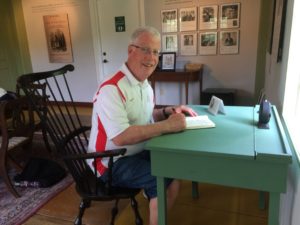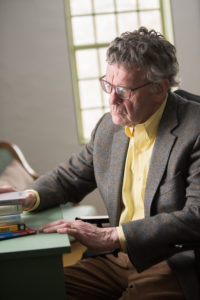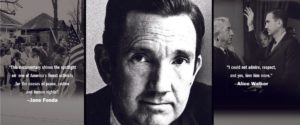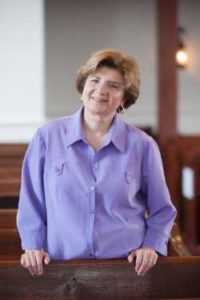By Tom O’Malley
It is good to walk with someone who knows how to put one foot in front of the other and move forward. For modern educators, it’s a downright necessity. What with all the theories, strategies, lesson plans, faculty meetings, parent associations, and student advocacy groups, one needs to find a companion who knows how to keep his or her feet on the ground.
Over the years, 36 and counting, I’ve never found a better schoolyard companion than Henry David Thoreau. He died in 1862, but luckily he left his voice with us in the form of two wonderful books and his grand opus Journals.
Henry’s journals were not published during his lifetime, and I suspect he might not appreciate the fact that they are readily available today. He was a precise writer, fond of editing and revising his work — honing it to literary sharpness. Perhaps that is why his voice still speaks to me here in the 21st century. My life in the classroom is often a combination of problem solving, handwriting, shoulder leaning, and all sorts of listening opportunities. Through it all, Henry remains my mentor, enduring wisdom sprung from the head of Zeus and deposited on the doorway of my classroom.
Here are two lessons:
In 1836, Henry was a newly minted Harvard graduate. He was also unemployed. One day, in desperation, he visited his famous friend, Ralph Waldo Emerson, who lived in the same neighborhood. The philosopher asked, “What are you doing now?” That is the ultimate question for students and teachers alike, one that should be asked over and over.
Henry spent the rest of his life confronting that question and using it as a guide. The answer prodded him to explore self-reliance at Walden Pond, and to create the genre of American nature writing. It also led him to prison in opposition to slavery. Good questions can shape a life. Good questions can shape a nation. As a teacher, I use Emerson’s question as a guide. What am I doing now? It connects me to my students and pushes our studies forward.
Can we learn how not to be bored? In his journal for June 27, 1840, Henry confronted boredom: ”I am living this 27th of June, 1840, a dull cloudy day and no sun shining. The clink of the smith’s hammer sounds feebly over the roofs, and the wind is sighing gently, as if dreaming of cheerfuller days.” I never realized life could be dull in the 19th century, what with all the discovering and Civil Warring going on. Yet there it is.
This is the kind of day the history books gloss over. Students often suggest that this is a world without computers, Blu-rays, or social media. What can you expect but boredom? Still, not one to give in, Henry found that boredom could be a useful part of life. He did this by taking up journal writing in a serious way. I like people who turn a perceived bad into a perceptive good, and that’s what he did. Notice the good, careful observation on that 27th of June entry. It’s just an ordinary day, but Henry turned it into something special by paying attention and then writing about it. There’s a lesson in all this for my students.
Journal writing went on at an almost daily pace for Henry, and it does for my students as well. Often times writers sit and wait for those moments of inspiration. I often see my students waiting for the Muse to descend and inspire them. Yet, as Thomas Edison pointed out, “Genius is 99% perspiration and 1% inspiration.” This applies to writing as well.
Henry found this out on January 29, 1851 when he wrote: “Of all the strange and unaccountable things, this journaling is the strangest. It will allow nothing to be predicted of it. Its good is not good, nor its bad bad. If I make a huge effort to expose my innermost wares to light, my counters seem cluttered with the meanest homemade stuffs, but after months or years I discover the wealth of India…”
See what I mean? There’s no waiting around for writing or most kinds of learning. It is really a matter of rolling up your sleeves and getting to work. There is magic in this work.
In the end, good writing requires patience, confidence and discipline. The writer needs faith that the ideas in his of her head can be fleshed out, sharpened and transferred onto the page. That is no easy task as anyone who has stared at the blank page will verify. Yet, walking with Henry will keep the journey interesting, and fuel the imagination every step of the way.
Tom O’Malley is an adjunct professor of English at Canisius College.





